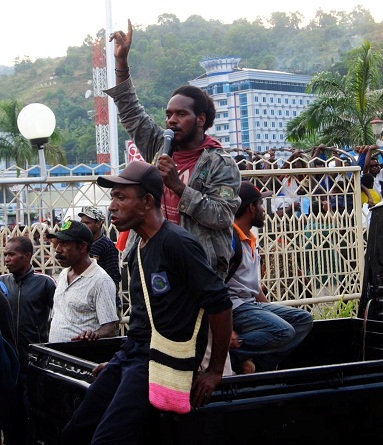Recent violence shows the authorities share a disturbing mindset about the residents of Papua
<br
Budi Hernawan
 |
A student demonstration in JayapuraBudi Hernawan |
The statement by President Yudhoyono that recent violent incidents in Papua are ‘small-scale incidents compared to those in the Middle East’ (Jakarta Post, 12 June 2012) is worrying. The worry is not only that, by comparing Papuans and people in the Middle East in this way, he appeared to confuse his constitutional duty to protect Indonesian nationals with his role as observer of world politics. It is also because his comment suggests the president views Papuans as living ‘bare lives.’
First coined by the Italian philosopher Giorgio Agamben, a ‘bare life’ denotes a life that is limited to its biological and physiological dimensions. The term emphasises the emptiness of such life, a life that is devoid of meaning and value. Lived bare, the life of an individual is equivalent to a piece of meat. If someone destroys this life, it makes no difference because a bare life that is ended cannot be transformed into sacrifice. It has no higher meaning or significance.
Whenever a Papuan is killed in violent conflict in Papua, this attitude is on public display. Government officials proclaim their concern about ‘national integrity’ or ‘security’, in abstract and formal terms. We never, or rarely, hear them expressing sympathy for the victims, or acknowledging that their lives were valuable and dignified. Human











